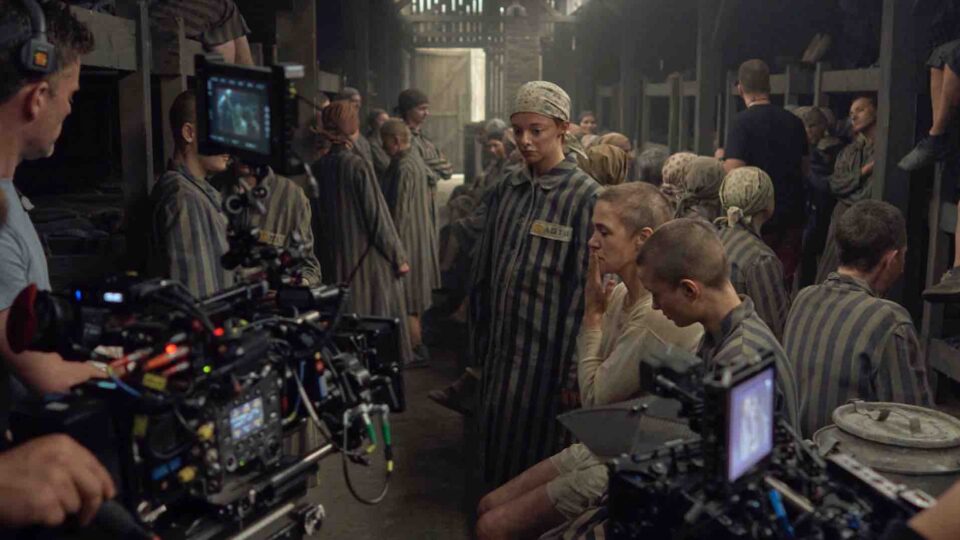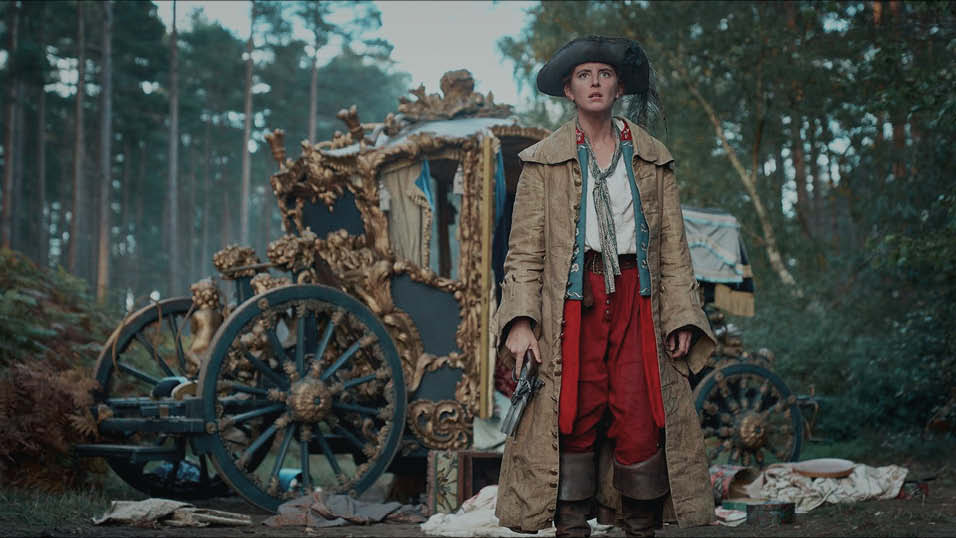Diversity – or the lack of it – has become the big talking point in TV. Amid all the debate, one organisation, MAMA Youth Project, has been actively doing something about it – for the past ten years.
Set up as a charity in 2007, MAMA Youth takes a hands-on approach to boosting the numbers of disadvantaged people in television – not only people of colour, but all disadvantaged groups, black or white.
So far, 392 people have been trained by MAMA Youth, most through a 13-week course which sees them learn on the job while making Sky One youth magazine show What’s Up TV. The course runs twice a year. 24 entrants go through an intensive initial bout of training. They apply to train in one specific role such as production, camera, sound or editing. The training is provided by execs from companies such as the BBC, Sky, Endemol Shine and Procam. The group then work as a team under an experienced exec, producer and two APs to create 6×30-mins of What’s Up.
What’s Up is produced out of MAMA Youth’s offices, provided by Sky at its Osterley HQ. When Televisual visited, some of the trainees were working up ideas for the next show, from current affairs investigations to entertainment interviews. Others were cutting footage in the MAMA Youth edit suites.
98% of its participants, says founder Bob Clarke, get an immediate short-term contract in TV. And 82% are still in TV after 12 months. “For a freelance industry, that is good,” he points out.
Bella Lambourne, HR director at Endemol Shine UK, says MAMA Youth is ‘hugely valuable’ for the role it plays in attracting people from different backgrounds to the industry. The superindie offered 16 paid work placements to MAMA Youth students last year. She describes the people who come out of MAMA Youth as “much more work ready, capable and keen” than those who come in via other routes.
MAMA Youth alumni Laura Rouxel, took the course in 2011. The course, she says, was ‘brilliant’, because students learn on the job. She’s now an AP on shows like Mock The Week.
An experienced TV editor, Clarke was inspired to launch MAMA Youth when a colleague commented to him that there were not enough black people in the industry. “The same person had said that to me about 20 years before. I thought, ‘I’ve been here for twenty years and what have I done about it?’”
One of the most important parts of the course, explains director of operations Cristina Ciobanu (who herself went through the MAMA Youth training programme) comes at the start – recruitment. MAMA Youth has on average 240 applicants for 24 places. Of these, 80 are interviewed. It is vital to understand what support they might need during the course, she says. Some might be homeless and living in a hostal, or be coping with depression, or may have recently come from prison. But the ones that make it through to the programme, she says, have one thing in common – the motivation to change their life and put in 100% effort.
Clarke began MAMA Youth very much on the fly, while working as a freelance editor and funding it out of his own pocket. He recruited his first group of talent back in 2005. Together, they produced the What’s Up show to broadcast standards for DVD. They met in hotel meeting rooms, and even restaurants. 10,000 copes of the DVD were given away free. “I thought we could get advertisers for the second show. But it didn’t work,” admits Clarke.
But he learned from the experience, and MAMA Youth re-emerged as an official charity in 2007, producing What’s Up for DVD. Slowly but surely, TV companies came knocking on MAMA Youth’s door. In 2010, the Community Channel asked to run What’s Up on its service. Then came a crucial meeting with former Sky md Sophie Turner Laing. It led, ultimately, to Sky acquiring the show in 2011 for Sky3. In 2015, it was commissioned by Sky 1.
MAMA Youth, stresses Clarke, doesn’t exist for the show. “We exist to get young people in to TV,” he explains. “The show is a by product of this.” The charity has also expanded its training, launching digital media workshops. Still, it’s a challenge for MAMA Youth to make ends meet. Sky and the BBC are its principal funders (it costs £600k to run the charity). Clarke would like to spread that financial burden more evenly through the industry, which he notes benefits from the work MAMA Youth is doing.
Meanwhile, MAMA Youth says it is putting in more effort to help alumni get on in the industry. Clarke says a big concern is the ‘exodus’ of BAME talent. “So many are leaving. Their credits and credentials are all good. But they see others bypass them for jobs. Something has to be done to stop the loss of talent.” While not a fan of quotas, Clarke thinks they might be needed to help BAME talent move into senior roles.
To date, he thinks diversity debates and schemes have had limited impact. And that, says Clarke, is what MAMA Youth is interested in. “In ten years time, we want to have made an impact on the industry.”
Profile: Bob Clarke
 MAMA Youth founder Bob Clarke didn’t have a conventional route into TV. He joined the army at 17 – partly, he says, to avoid getting caught up in trouble. He stayed 14 years. “It taught me so much – that being hard was about more than fighting. It meant facing up to everyday challenges.”
MAMA Youth founder Bob Clarke didn’t have a conventional route into TV. He joined the army at 17 – partly, he says, to avoid getting caught up in trouble. He stayed 14 years. “It taught me so much – that being hard was about more than fighting. It meant facing up to everyday challenges.”
After the army, Clarke got a job in a video duplication warehouse. Then came ‘a life changing moment,’ when he was offered the chance to train as a VT operator. “I knew what it meant – that I was on a career path and could earn a decent salary.”
That moment, says Clarke, is the essence of MAMA Youth and what motivates it to help others find a job in TV.
Clarke went on to work as an editor on light ent, news and docs, eventually setting up his own facility – MAMA Productions, which led to the formation of MAMA Youth.
Clarke’s spell in the army, meanwhile, underpins the training at MAMA Youth (which he describes as a ‘boot camp’). “The British army are the best trainers in the world.”
Tim Dams
Share this story

















